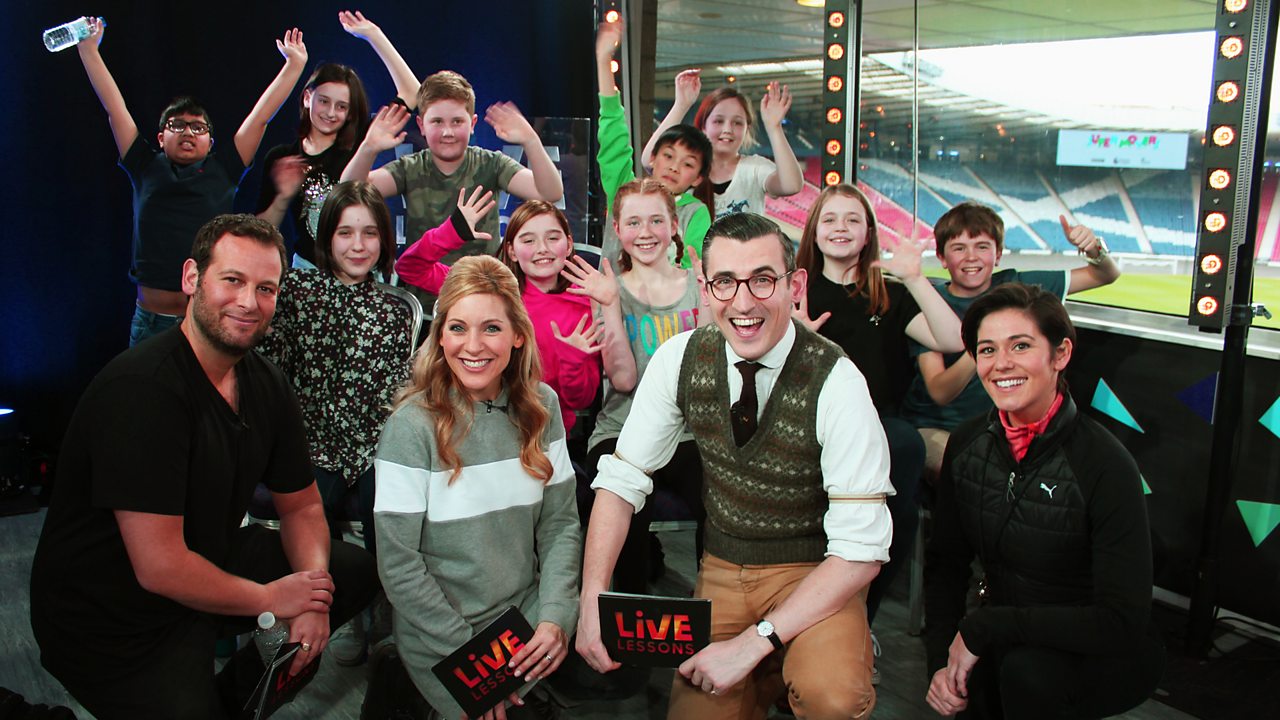Wellbeing: Bouncing back to class - Live Lesson
This wellbeing-themed Live Lesson is designed to help pupils transition back to school, and look hopefully towards the future whilst using resilience and exercise to achieve positive wellbeing.
We've partnered with the Premier League to bring you this interactive lesson for primary schools, presented by BBC Radio 1's Katie Thistleton and CBBC's Hacker T. Dog and featuring Mr Smith from Bitesize Daily.
Please note that we are no longer reviewing emails and messages from schools for inclusion in the lesson.
Curriculum Links
Key Stage 1
Children will be encouraged to:
- develop a vocabulary to describe their feelings to others, and simple strategies for managing feelings
- develop listening skills as others describe their feelings
- be able to talk about good and not so good feelings
- learn about what healthy people do, including the benefits of rest and exercise
- plan and carry out a programme of exercise
Key Stage 2
Children will be encouraged to:
- write about their feelings
- be able to talk about feelings
- recognise and respond appropriately to a wider range of feelings in others
- think about what positively and negatively affects their physical, mental and emotional health
How to use this resource
Check out our lesson guide for teachers and print out the activity sheets for pupils below.
- Download our teacher guide
- Wellbeing activity booklet - colour version
- Wellbeing activity booklet - black and white version
Supporting resources from Twinkl
This Live Lesson is supported by free teaching resources from Twinkl. Download today using the links below:
Teacher guidance: ensuring a safe and supportive learning environment
Teachers should ensure that the learning environment is safe and supportive for all pupils during viewing, especially when they are asked to share ideas, feelings and emotions.
Ensure the environment is safe and supportive by:
- discussing/reminding pupils of ground rules. Pupils should feel confident that anything they share is valued and not judged by staff or classmates. Negotiate or reiterate agreed ground rules for discussion and behaviour before viewing.
- being sensitive and aware that there may be pupils who express difficult emotions, or become distressed. Sensitivity is important even if you are not aware of any existing personal circumstances in the class – always work on the basis that there is at least one child who may be vulnerable, or not feeling okay. You may wish to notify members of staff such as the school counsellor, teaching assistants and designated safeguarding lead of programme content before viewing. You may also wish to provide comfort items, or a safe space for anyone who does become distressed. Please pay particular attention to any students known to be living with mental ill-health or other vulnerabilities.
- offering reassurance: Pupils should not feel under pressure to share their ideas, feelings or emotions publicly if they do not want to do so. Consider providing an alternative, anonymous way to share feelings, such as a closed box or post-its.
- following up: make yourself available for pupils if they want to discuss anything with you afterwards, and ensure pupils know where else they can get support, both in and out of school. If necessary, consider providing a safe and private space for pupils who may experience difficult emotions, and discuss their reactions with parents if this is appropriate.
- ensuring you follow your school’s safeguarding and confidentiality policies and procedures; this is especially important if a pupil says anything that causes you concern, or makes a disclosure. If you are unsure of the procedures, seek advice from your Designated Safeguarding Lead, or contact the NSPCC on 0808 800 5000.
For further detail on establishing safe teaching and learning procedures, see guidance offered by the PSHE Association.


